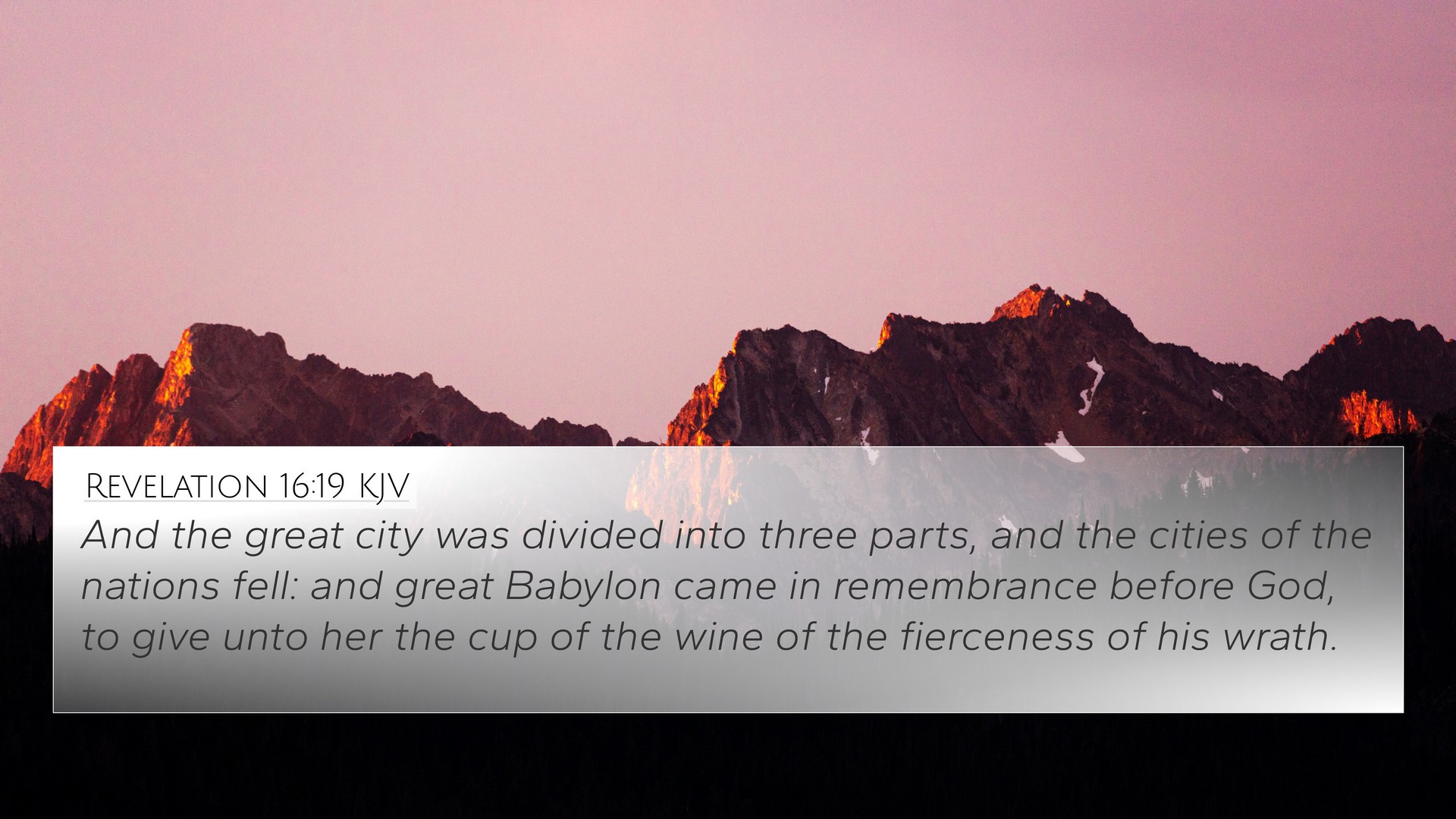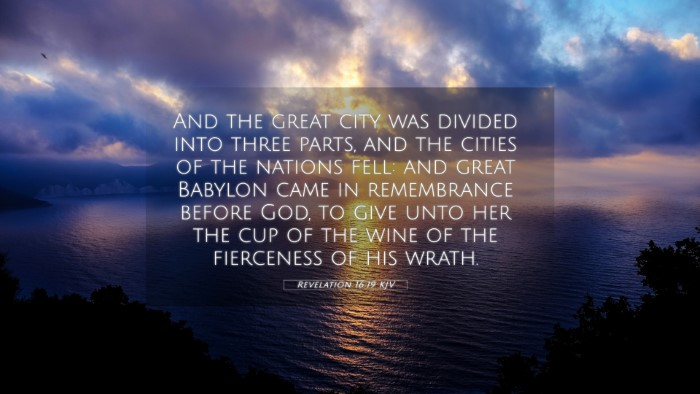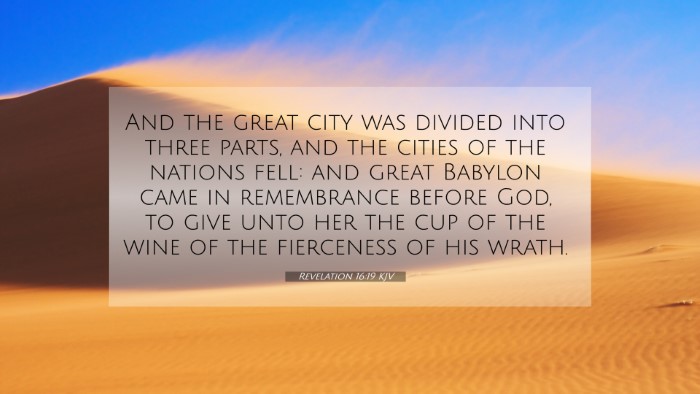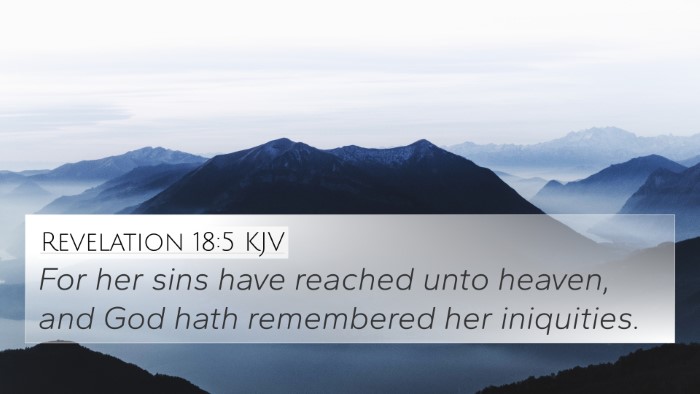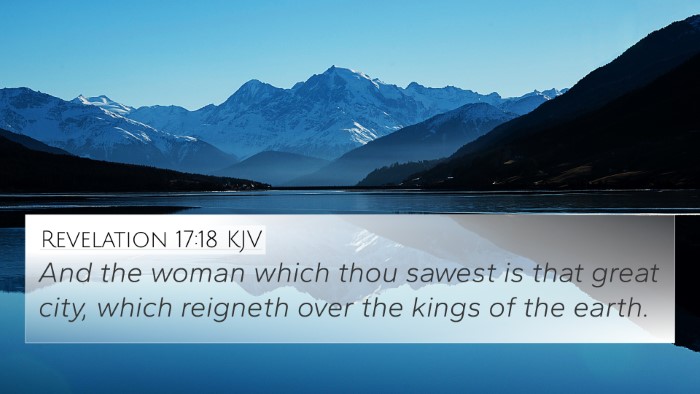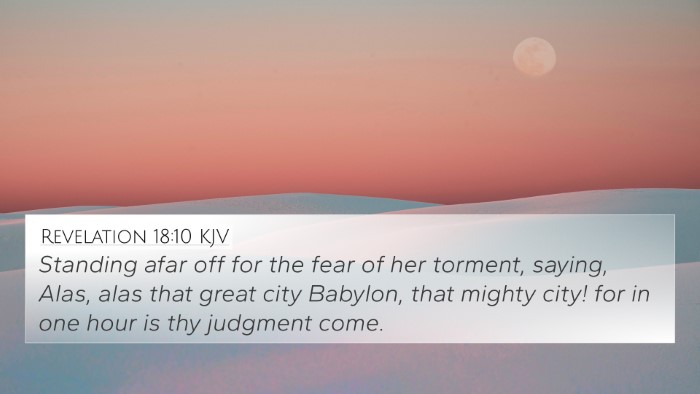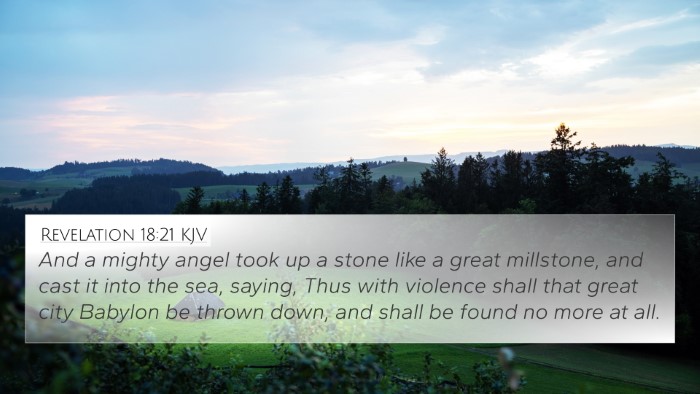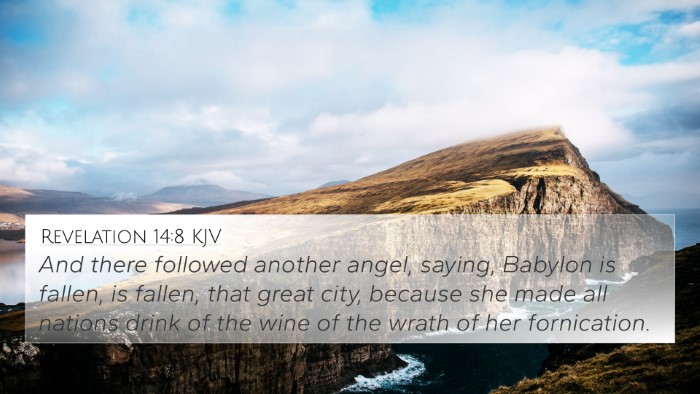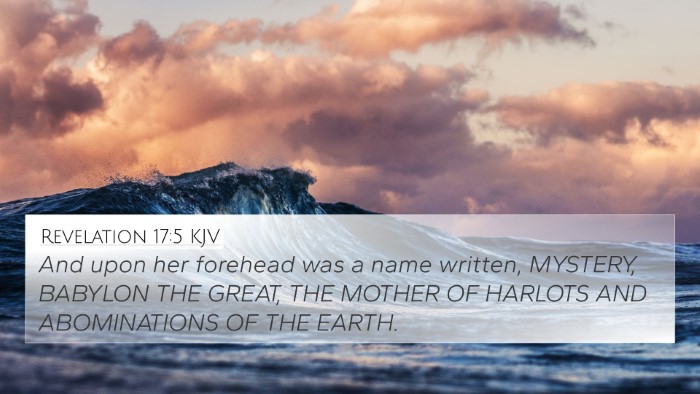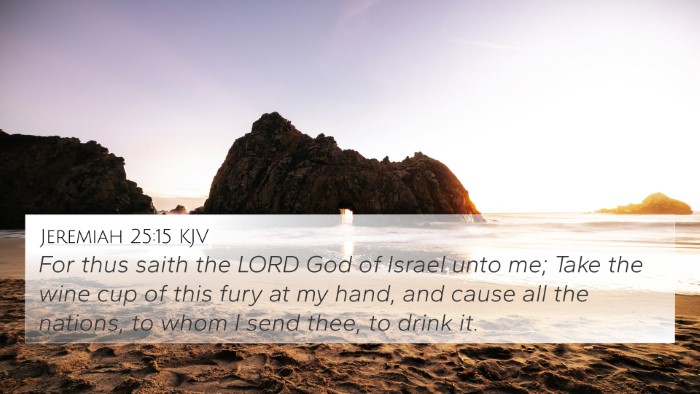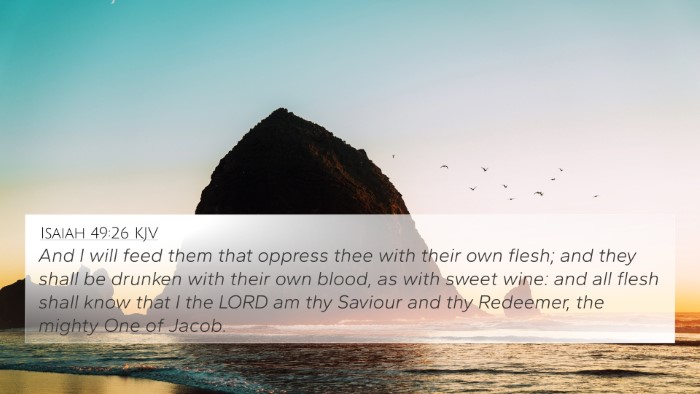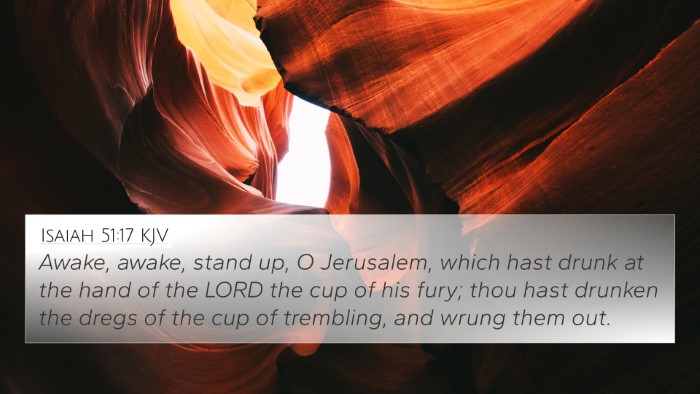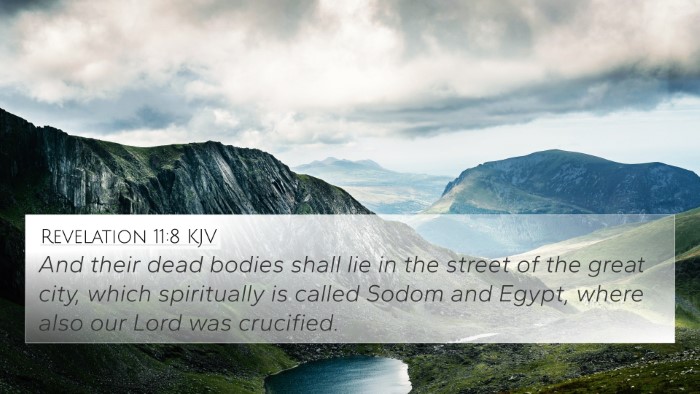Understanding Revelation 16:19
Verse Reference: Revelation 16:19
Verse: "And the great city was divided into three parts, and the cities of the nations fell: and great Babylon came in remembrance before God, to give unto her the cup of the wine of the fierceness of his wrath."
Overview and Context
The Book of Revelation, attributed to John, is a prophetic text filled with symbolism and deep theological implications. Revelation 16:19 plays a pivotal role in the narrative of divine judgment upon humanity and the ultimate victory of God. In understanding this verse, it is essential to recognize the broader context of the final judgments and the themes of divine retribution present throughout the scripture.
Thematic Connections
Revelation 16:19 embodies several key themes, including:
- The Judgment of God: This verse signifies the pouring out of God’s wrath, which is a recurring theme in biblical prophecy.
- The Fall of Babylon: Representing human pride and rebellion against God, Babylon's fall is a central motif in apocalyptic literature.
- The Division of Nations: The division into three parts reflects the chaotic consequences of sin and rebellion.
Commentary Insights
According to Matthew Henry, this verse highlights the complete destruction of earthly cities and systems that oppose God. Babylon stands as a symbol of sin and rebellion, receiving God's wrath as a consequence of its actions. Henry emphasizes that the division of the city represents the breakdown of human structures that cannot withstand divine judgment.
Adam Clarke elaborates on the implications of the phrase "great city," interpreting it as a representation of both literal cities and the spiritual state of nations. Clark argues that this can be seen as a metaphor for a world system that is in total opposition to God's sovereignty. The mention of the cup of God's wrath further underscores the seriousness of divine judgment and the inevitability of retribution for those who persist in their rebellion.
Albert Barnes suggests that the destruction of the nations aligns with the prophetic warnings found in the Old Testament, demonstrating the fulfillment of God's promises to bring justice upon the corrupt systems of this world. Barnes correlates this judgment with similar descriptions found in the writings of the Prophets, particularly in Isaiah.
Cross-References for Revelation 16:19
To achieve a deeper understanding of Revelation 16:19, it is worthwhile to consider the following cross-references:
- Isaiah 13:19: "And Babylon, the glory of kingdoms, the beauty of the Chaldeans' pride, shall be as when God overthrew Sodom and Gomorrah."
- Jeremiah 51:7: "Babylon hath been a golden cup in the Lord's hand, that made all the earth drunken: the nations have drunken of her wine; therefore the nations are mad."
- Revelation 14:8: "And there followed another angel, saying, Babylon is fallen, is fallen, that great city, because she made all nations drink of the wine of the wrath of her fornication."
- Revelation 18:2: "And he cried mightily with a strong voice, saying, Babylon the great is fallen, is fallen, and is become the habitation of devils, and the hold of every foul spirit..."
- Matthew 24:30: "And then shall appear the sign of the Son of man in heaven: and then shall all the tribes of the earth mourn, and they shall see the Son of man coming in the clouds of heaven with power and great glory."
- Isaiah 24:10: "The city of confusion is broken down: every house is shut up, that no man may come in."
- Revelation 6:12-17: The sixth seal speaks of cosmic disturbances that signal God’s judgment.
- Zechariah 14:2: "For I will gather all nations against Jerusalem to battle; and the city shall be taken..."
- 2 Thessalonians 1:7-9: "And to you who are troubled rest with us, when the Lord Jesus shall be revealed from heaven..."
- Micah 3:12: "Therefore shall Zion for your sake be plowed as a field, and Jerusalem shall become heaps..."
Conclusion
In Revelation 16:19, we see the culmination of God's judgment against the rebellious and sinful systems symbolized by Babylon. Through careful examination of cross-references and insights from key commentators, this verse serves as a sobering reminder of God's sovereignty and the ultimate consequences of turning away from Him. By using tools for Bible cross-referencing, readers can enrich their understanding of this verse within the greater biblical narrative, revealing the interconnectedness of scripture and the thematic unity of God's message throughout the ages.
